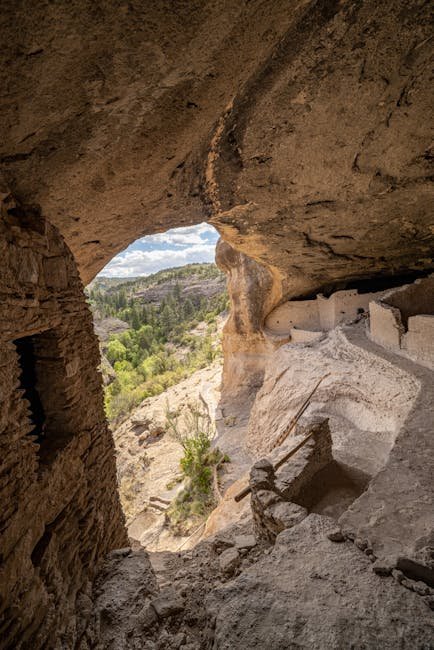Key Takeaways
- “Civilisation” and “Civilization” are variant spellings used primarily in British and American English respectively, referring to complex human societies within geopolitical boundaries.
- Both terms denote the development of organized societies characterized by governance, culture, and territorial identity.
- The choice of spelling often reflects regional linguistic preferences rather than conceptual differences in geopolitical context.
- Understanding these terms within geopolitical frameworks highlights how societies evolve through governance structures, cultural identity, and territorial demarcation.
- Examining the subtle nuances in usage illuminates the influence of language on geopolitical discourse and identity representation.
What is Civilisation?

The term “Civilisation” is primarily used in British English to describe complex human societies defined by political organization, cultural development, and territorial boundaries. It emphasizes shared customs and governance within specific geographical regions.
Governance and Political Organization
Civilisation often refers to the structured systems of governance that regulate societies within defined borders. For example, the British Empire was considered a civilisation due to its administrative framework and territorial reach across continents.
Governance within a civilisation includes legal systems, leadership roles, and social hierarchies that maintain order and identity. These elements are essential for managing resources and resolving conflicts among populations.
The evolution of civilisations frequently involves the consolidation of smaller communities into centralized states. This process enables efficient control over diverse groups and the establishment of geopolitical boundaries recognized internationally.
Cultural Identity and Traditions
Civilisation encompasses the shared cultural practices, languages, and belief systems that bind people within a geopolitical entity. For instance, the ancient Egyptian civilisation was distinguished by its unique religious rites and artistic expressions tied to its territorial domain.
Cultural identity within a civilisation fosters social cohesion and a sense of belonging among its members. This shared identity often manifests through festivals, laws, and historical narratives celebrated within the borders of the civilisation.
The transmission of cultural knowledge through generations helps maintain the continuity of a civilisation. It also serves as a marker differentiating one civilisation from another, especially when territorial disputes arise.
Territorial Boundaries and Influence
Territorial demarcation is a critical aspect of civilisation, as it defines the geographic scope within which social and political systems operate. Civilisations historically arose along fertile river valleys or strategic trade routes, such as the Mesopotamian civilisation between the Tigris and Euphrates.
The control and defense of territory are fundamental to a civilisation’s sustainability and capacity to project influence. Borders not only protect inhabitants but also symbolize political sovereignty and cultural distinctiveness.
Interactions between neighbouring civilisations often occur through diplomacy, trade, or conflict, shaping the geopolitical landscape. These interactions influence the expansion or contraction of civilisational boundaries over time.
What is Civilization?

“Civilization” is the American English spelling that denotes the same concept of organized societies with complex governance, culture, and defined territorial extents. It highlights the structural and cultural characteristics of human groupings within geopolitical frameworks.
Political Systems and Administrative Control
Civilization signifies the existence of formal political institutions that govern populations within recognized borders. The United States, as a modern civilization, exemplifies this with its federal government overseeing diverse states under one political system.
Administrative control within a civilization involves bureaucracies, codified laws, and enforcement mechanisms to maintain societal order. These structures enable the management of resources and the execution of public policies across territories.
The growth of civilizations often parallels the development of diplomatic relations and treaties that define territorial sovereignty. These political arrangements help prevent conflicts and promote cooperation among civilizations.
Shared Cultural Norms and Heritage
Civilization encompasses collective cultural values, ethical codes, and artistic achievements that shape a society’s identity. For example, the Native American civilizations held distinct spiritual beliefs and social customs tied to their lands and histories.
The perpetuation of cultural heritage within a civilization involves education, rituals, and preservation of historical artifacts. These practices reinforce the societal fabric and distinguish one civilization from others in geopolitical contexts.
Civilization’s cultural dimension also includes language evolution, literature, and technological innovation that reflect the civilization’s adaptability. These elements contribute to its resilience and prominence on the geopolitical stage.
Defined Geopolitical Boundaries and Impact
Geopolitical boundaries in a civilization are the physical and political lines that separate one society from another. The borders of civilizations like the Roman Empire were clearly marked by fortifications and administered provinces.
Control over these boundaries affects a civilization’s security, economic vitality, and international relations. Civilizations invest in maintaining these borders to assert dominance and protect cultural integrity.
Interactions across borders can lead to cultural exchange, trade, or conflict, shaping the civilization’s development trajectory. The geopolitical influence of a civilization often extends beyond its immediate borders through diplomacy or conquest.
Comparison Table
The table below highlights essential aspects differentiating the usage and nuances of “Civilisation” and “Civilization” within geopolitical contexts.
| Parameter of Comparison | Civilisation | Civilization |
|---|---|---|
| Primary Linguistic Usage | Predominantly British English, used in Commonwealth nations and Europe. | Primarily American English, favored in the United States and some international contexts. |
| Historical Associations | Often linked with classical and ancient societies studied in European academia. | Commonly applied in modern geopolitical discourse, especially in North American scholarship. |
| Spelling Origin | Derived from French “civilisation,” reflecting older European orthography. | Adapted to American English spelling conventions, simplifying the ending. |
| Cultural Connotation | Conveys a nuanced sense of tradition and continuity tied to established empires. | Suggests a forward-looking perspective emphasizing development and expansion. |
| Geopolitical Emphasis | Focuses on established territorial states with longstanding governance. | Highlights evolving political entities and emergent nations within defined boundaries. |
| Use in Academic Literature | Preferred in historical and anthropological texts within British-influenced regions. | Dominates geopolitical and sociological studies in American academic circles. |
| Perception of Authority | Sometimes regarded as more formal and traditional in tone. | Considered more accessible and contemporary in usage. |
| Global Recognition | Maintains relevance in international forums with British linguistic influence. | Widely recognized in global media and policy documents originating from the U.S. |
| Application in Policy Discourse | Used in Commonwealth policy papers reflecting historical geopolitical frameworks. | Common in American foreign policy documents addressing nation-building and diplomacy. |
| Impact on Identity Narratives | Supports narratives emphasizing historical continuity and cultural heritage. | Facilitates discussions on modernization and geopolitical innovation. |
Key Differences
- Spelling Variation Reflects Regional English — “Civilisation” is favored in British English contexts, while “Civilization” dominates American English usage.
- Historical vs. Contemporary Emphasis — Civilisation often implies a focus on traditional, long-standing societies, whereas Civilization suggests modern, evolving geopolitical entities.
- Cultural Nuance in Tone — Civilisation carries a more formal and heritage-based connotation, contrasting with Civilization’s accessible and progressive tone.
- Academic Preference — British and Commonwealth scholars typically use Civilisation, whereas American academics and policymakers prefer Civilization.


